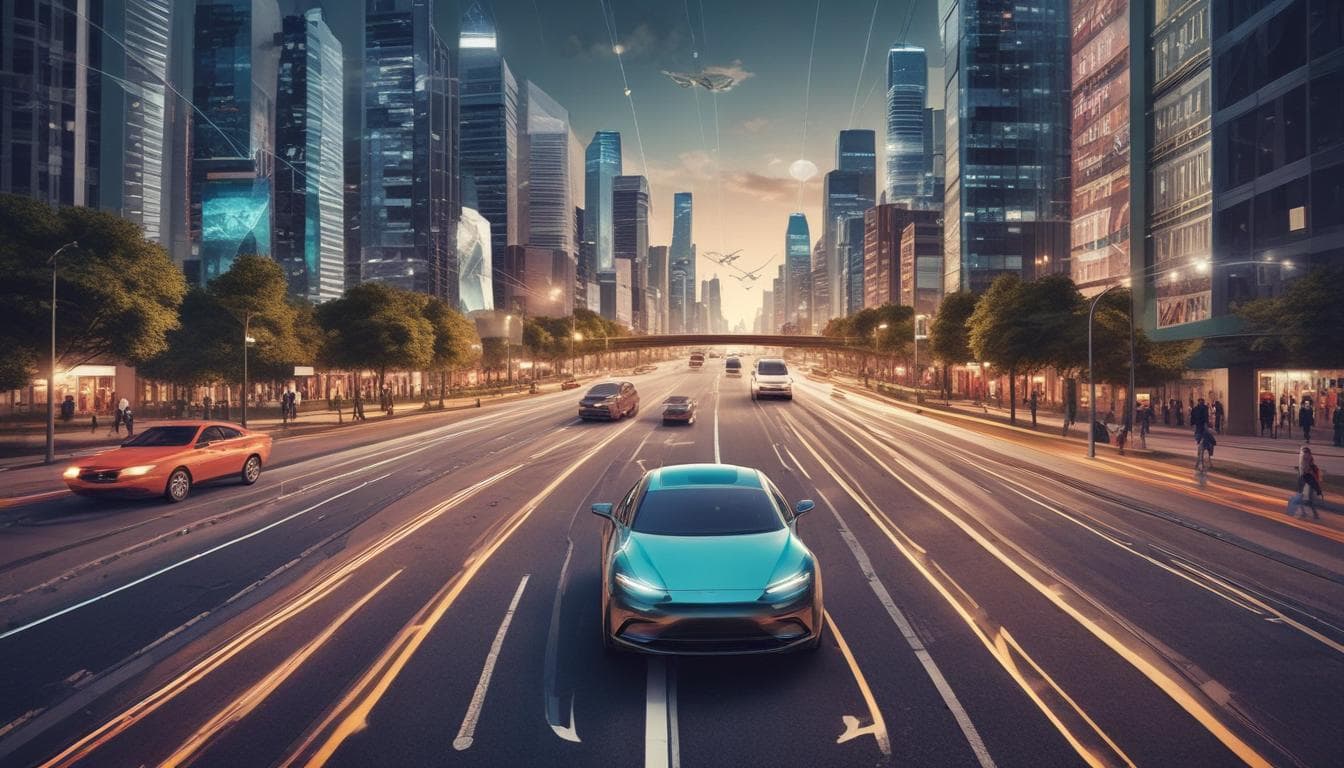With the rise of AI in vehicles, imagine a future where cars can analyze your emotional state and adapt their driving style, interior ambiance, and even suggest personalized entertainment. How do you envision this technology impacting the driving experience, and what are the potential ethical considerations of such emotionally intelligent vehicles?
Imagine driving home after a long, stressful day, and your car not only detects your mood but adjusts its behavior to make your journey more relaxing—it might lower the interior lighting, soften the suspension settings, or suggest soothing music from your playlist. This kind of emotionally intelligent technology in vehicles could redefine personal mobility, making it more tailored to our needs and emotions.
There are several potential impacts on the driving experience. For example:
-
Comfort and Safety: By recognizing when a driver is stressed or fatigued, the car could engage calming features or suggest breaks, which could ultimately make roads safer. AI could even activate assistive technologies like Adaptive Cruise Control or lane-keeping systems during moments of distress.
-
Enhanced Personalization: This technology could transform the car into a companion-like entity, making the driving experience immersive and enjoyable. Personalization could extend from ambiance to navigation suggestions tailored to your current mood.
However, the implementation of such emotionally aware systems raises significant ethical concerns:
-
Privacy and Data Security: For cars to detect emotional states, they would need to process highly sensitive data like facial expressions, voice patterns, or even physiological signs. Ensuring that this data is anonymized and securely stored is critical. Transparency about how and why this data is used will be foundational to gaining public trust.
-
Potential Bias in AI Systems: Emotion-detection algorithms might struggle with cultural, individual, and contextual nuances, leading to misinterpretation. Developers will need to ensure that these systems are inclusive and non-discriminatory.
-
Over-reliance on Technology: If cars become too adaptive, it may inadvertently reduce driver attentiveness, particularly in semi-autonomous driving settings. Striking a balance between assistance and driver engagement will be a key challenge.
For those interested in how advanced AI is revolutionizing automotive design, manufacturing, and overall driving experiences, I highly recommend reading about the transformative role of AI in the automotive industry. It provides deeper insights into the broader applications of AI in this space.
Additionally, initiatives like these align with broader trends, such as integrating features like Extended Reality to enhance the automotive experience, showcasing how cutting-edge technologies converge to create a futuristic driving paradigm.
What are your thoughts on this? Do you feel the benefits outweigh the ethical dilemmas, or should these developments be approached with more caution?
このトピックについてさらに詳しく探る
会話に参加する
- 未来のドライブ体験:自動車が「思い出」を記録・共有する機能について
自動車がAIを活用して「思い出」を記録・共有する未来のドライブ体験について議論しましょう。美しい風景、音楽、会話などを自動記録し、他のドライバーと共有したり、AIが新たなドライブコースを提案。メリット、デメリット、プライバシー、社会的影響について意見交換。
- 車が感情を読み取る都市:未来のモビリティ社会の可能性と課題
車が都市の感情を読み取れる未来のモビリティ社会。交通渋滞緩和、事故減少といったメリットと、プライバシー、AI倫理といった課題を考察し、未来の可能性と課題について議論しましょう。
- 車が都市の感情を読み取れたら?未来のモビリティ社会を想像しよう!
車が渋滞のイライラやお祭りの高揚感など、都市の感情を読み取れるようになったら?車のデザインや機能、私たちの生活はどう変わる?未来のモビリティ社会について自由に語り合いましょう。





